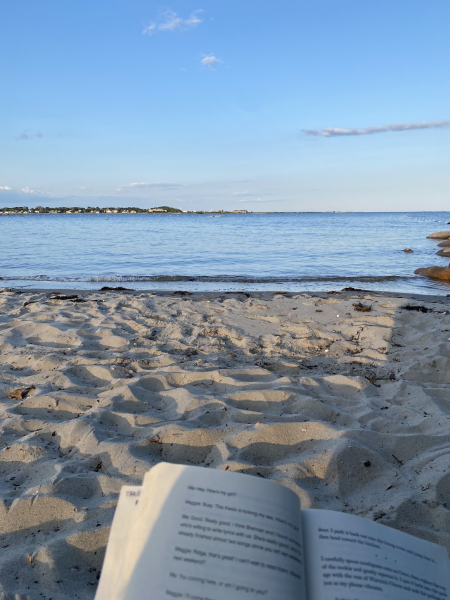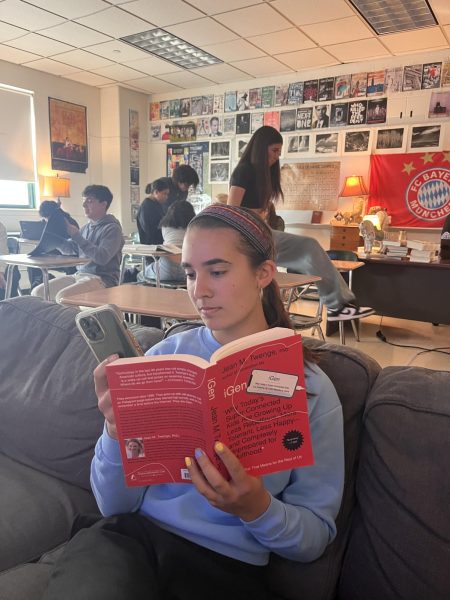Senior superlatives are not aging well

Everybody dreams of that one magical night when they will be recognized by their peers as wholly superior. For Carrie White in Stephen King’s novel and movie adaptation Carrie it was the night she was crowned Prom Queen, then promptly had pig’s blood poured on her head. In Jeffrey Eugenides’s The Virgin Suicides, Lux Lisbon had the honor of having the title of Homecoming Queen bestowed upon here. But let’s not forget the booby prizes given to those less fortunate: superlatives.
As far as the tradition of homecoming goes back in DHS’s history, there have been superlatives.
With the main exception of Most School Spirit, superlatives have varied throughout the decades of DHS’s history. In 1950, some superlatives were Class Wit, Most Studious, Biggest Loafer, Biggest Drag With Teachers (I really think we should bring this one back), Best Alibis (this superlative was given out also in 1961, although I’m admittedly not quite sure what it says about a student), and laughably, Most Popular.
In 1980 there was Nicest To Be With and Highway Menace, both of which are more original and applicable than current superlatives we uphold today.
And in 1998, there was Class Politician, Most Talkative, Most Sincere, and Comfortably Dressed. Of course I don’t think we could do Comfortably Dressed in this day and age because at least five percent (this is a rough estimate) of DHS students wear their pajamas to school once a week.
One that stood out from the rest in 1974 was Most Willing To Help. This title, along with 1998’s Most Sincere and 1980’s Nicest to Be With, are some of the rare, genuine superlatives that highlight qualities about people that actually deserve to be recognized.
DHS senior and Homecoming Court Member James Cassell said, “I think Friendliest or Most Likely To Brighten Someone’s Day should be there because that’s what’s actually important when it all boils down, and it would be a big honor for anyone to get that.” Athleticism can fade away and couples can break up, but a warm and friendly attitude won’t fall victim to the sands of time.
The senior class advisors are responsible for organizing the Homecoming/Superlative dance, as it is a fundraiser for the senior class. This year the duty will fall to the Class of 2016’s advisors: DHS Secretary Angela English and Guidance Counselor Nicole Heath, along with Technology Teacher Robert Aguiar who set up the online superlatives voting system.
“It’s been done for years, it’s tradition, it’s fun,” said Ms. English, when giving her opinion on superlatives.
But really, in the 21st century, how necessary are some of the titles that we still uphold? Can some of them really be described as “achievements” of students?
Yes, I’m talking about “Best Looking” in this case. How subjective and superficial are we? It’s funny how we, as a grade, are supposed to decide democratically who, of all of the boys and girls, has the most appealing facial features.
Why is this even a thing? Why do we feel the need to objectify both girls and boys by focusing on their exteriors?
It’s true that the media objectifies men and women by endorsing a particular type of physique, but it is also hard to believe that this type of superficiality is endorsed in an establishment whose sole purpose is help grow the minds of today’s young individuals.
Superlatives of this nature are only further cementing the idea into our heads that looks are what is important in a person, and that physical appearance should be carefully assessed among each person with whom we become acquainted.
DHS senior Tory Dias said, “I dislike Best Looking because there are always people who say, ‘Oh, he’s not that cute,’ or ‘She’s not that pretty.’”
Besides Best Looking, students of DHS have oppositions against other superlatives.
DHS senior Abby Ackerman said, “It is literally impossible to pick a non-straight couple for Class Couple. Like, it says pick boy and then pick girl. I think that’s pretty lame.” Less political superlative oppositions can be found in the mix as well.
“Most Likely To Stay In Dartmouth and Most Likely To Travel The World are two of the dumbest things I’ve ever heard in my entire life,” said Cassell. “Like what qualities can someone possess to demonstrate to the whole school how excited they are to travel to the point where everyone is like, ‘Oh, that person sure does love Dartmouth and/or traveling.’”
DHS English Teacher Ann Fifield said, “Personally, I like the ones that show kids who give of themselves for the betterment of society. I don’t put a lot of stock in who gets what for most of them. It has always smacked of a popularity contest for as long as I have known what a superlative was.”
In a similar vein, DHS History Teacher Andrew Apperson said, “I think it can be kind of fun, but in some way, I think it can favor well-known or popular individuals, so it feels a little antiquated for that reason.” As a teeenager, Mr. Apperson attended Old Rochester Regional High School and had hoped to win a superlative during his senior year.
“I wanted to be Class Clown, but I guess there were funnier or more well-known funny people in my class. I wasn’t known by the larger population,” he said.
Here are some superlatives that should be added to the list: Most Likely To Be Living With Their Parents In 10 Years, Most Likely To End Up In Prison, Most Likely To Show Up Drunk To Our High School Reunion, Most Likely To Organize Anarchy Against School Administration, and Dopest Mixtape.






